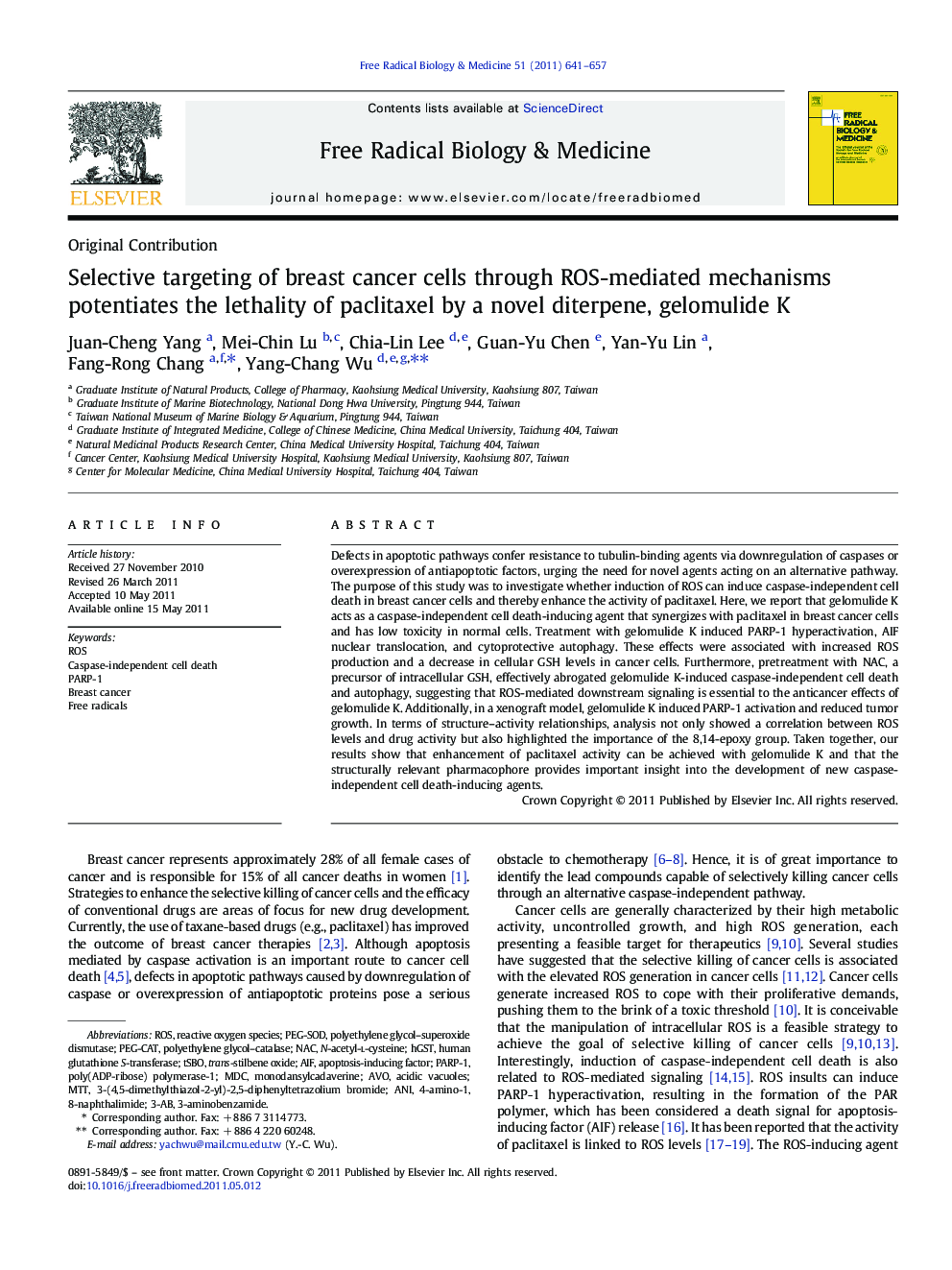| Article ID | Journal | Published Year | Pages | File Type |
|---|---|---|---|---|
| 10738013 | Free Radical Biology and Medicine | 2011 | 17 Pages |
Abstract
Defects in apoptotic pathways confer resistance to tubulin-binding agents via downregulation of caspases or overexpression of antiapoptotic factors, urging the need for novel agents acting on an alternative pathway. The purpose of this study was to investigate whether induction of ROS can induce caspase-independent cell death in breast cancer cells and thereby enhance the activity of paclitaxel. Here, we report that gelomulide K acts as a caspase-independent cell death-inducing agent that synergizes with paclitaxel in breast cancer cells and has low toxicity in normal cells. Treatment with gelomulide K induced PARP-1 hyperactivation, AIF nuclear translocation, and cytoprotective autophagy. These effects were associated with increased ROS production and a decrease in cellular GSH levels in cancer cells. Furthermore, pretreatment with NAC, a precursor of intracellular GSH, effectively abrogated gelomulide K-induced caspase-independent cell death and autophagy, suggesting that ROS-mediated downstream signaling is essential to the anticancer effects of gelomulide K. Additionally, in a xenograft model, gelomulide K induced PARP-1 activation and reduced tumor growth. In terms of structure-activity relationships, analysis not only showed a correlation between ROS levels and drug activity but also highlighted the importance of the 8,14-epoxy group. Taken together, our results show that enhancement of paclitaxel activity can be achieved with gelomulide K and that the structurally relevant pharmacophore provides important insight into the development of new caspase-independent cell death-inducing agents.
Keywords
PEG-CATPEG-SODPARP-13-ABNACN-acetyl-l-cysteineMDCAVOANI3-(4,5-dimethylthiazol-2-yl)-2,5-diphenyltetrazolium bromide3-AminobenzamideMTTROSAIFTrans-stilbene oxideFree radicalsBreast cancerapoptosis-inducing factorCaspase-independent cell deathMonodansylcadaverinePoly(ADP-ribose) polymerase-1Reactive oxygen species
Related Topics
Life Sciences
Biochemistry, Genetics and Molecular Biology
Ageing
Authors
Juan-Cheng Yang, Mei-Chin Lu, Chia-Lin Lee, Guan-Yu Chen, Yan-Yu Lin, Fang-Rong Chang, Yang-Chang Wu,
